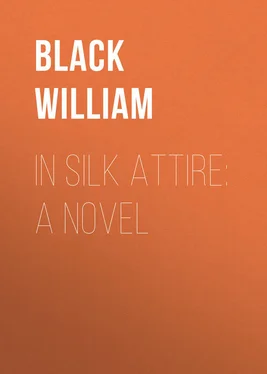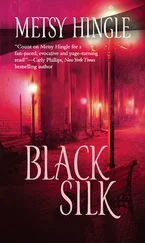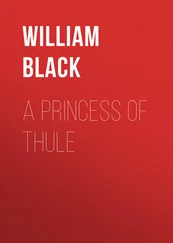William Black - In Silk Attire - A Novel
Здесь есть возможность читать онлайн «William Black - In Silk Attire - A Novel» — ознакомительный отрывок электронной книги совершенно бесплатно, а после прочтения отрывка купить полную версию. В некоторых случаях можно слушать аудио, скачать через торрент в формате fb2 и присутствует краткое содержание. Жанр: foreign_antique, foreign_prose, на английском языке. Описание произведения, (предисловие) а так же отзывы посетителей доступны на портале библиотеки ЛибКат.
- Название:In Silk Attire: A Novel
- Автор:
- Жанр:
- Год:неизвестен
- ISBN:нет данных
- Рейтинг книги:4 / 5. Голосов: 1
-
Избранное:Добавить в избранное
- Отзывы:
-
Ваша оценка:
- 80
- 1
- 2
- 3
- 4
- 5
In Silk Attire: A Novel: краткое содержание, описание и аннотация
Предлагаем к чтению аннотацию, описание, краткое содержание или предисловие (зависит от того, что написал сам автор книги «In Silk Attire: A Novel»). Если вы не нашли необходимую информацию о книге — напишите в комментариях, мы постараемся отыскать её.
In Silk Attire: A Novel — читать онлайн ознакомительный отрывок
Ниже представлен текст книги, разбитый по страницам. Система сохранения места последней прочитанной страницы, позволяет с удобством читать онлайн бесплатно книгу «In Silk Attire: A Novel», без необходимости каждый раз заново искать на чём Вы остановились. Поставьте закладку, и сможете в любой момент перейти на страницу, на которой закончили чтение.
Интервал:
Закладка:
"Why have you come alone this morning?" said Will Anerley to his companion, as they walked.
"You know papa never goes to church," said the young girl. "And mamma has never gone to hear Mr. Oldham since he spoke to her about the Athanasian creed. I suppose you did not hear about that since you came home?"
"No," said Will; though he had an idea why his mother – whom Dove had also been taught to call "mamma" – feared the Athanasian creed.
"You know," continued the girl, very seriously, "how anxious mamma is because papa won't go to church, and because of his studies and the strange things he says at times; and sometimes she gets very sad about it. It is the only thing she is ever sad about; and when I tell her that there can't be much wrong in what so good a man believes, she only gets the sadder, and sometimes cries a little bit. Well, this Sunday morning she and I were talking about it all the way to church, and she was very much disturbed. I don't think she had ever paid any attention to the Athanasian creed before; but on that morning, Mr. Oldham read it, and I saw her look strangely at him and at the book. Then all at once her face got quite white, she shut the book, and without a word to me walked out of the church and went straight home."
"And I suppose my father laughed a little, and tried to make her believe that he had already constructed some theoretical fire-escape from the dangers with which he was threatened?"
"Mr. Oldham came over next day to call upon mamma, and he was talking very seriously to her, and making her very miserable – indeed, she was crying nearly all the time – when papa came into the room."
"Oh – was it by the door that Mr. Oldham left?"
"What do you mean? Papa stood there, with that curious smile he has on his face when he puzzles and perplexes people, you know; and in a few minutes Mr. Oldham was in a terrible rage. I remember distinctly one thing papa said. 'Mr. Oldham,' he said, with a sort of twinkle in his eye, 'I am not surprised that you have the Athanasian creed in your service; for clergymen, like other men, must be allowed the use of bad language occasionally. But you should indulge yourself privately, and not frighten women when they go to pray in your church.'"
"How very wicked of him! But then, Dove, Mr. Oldham belongs to the next parish; and he had no business to go poaching on Mr. Bexley's manor."
"And so very anxious she is about you also, Will. She is sometimes very sad about papa; but she can't help seeing what a good man he is. She says to me that you are young, and that if you grow up to believe what he believes, you may not be quite the same – you know, dear, that is only a feeling she has."
"Who wouldn't be orthodox to please such a mother?" said Will.
"And I, too," said the girl, with a touch of colour in her cheek, and in rather a lower voice, "I should be grieved to think that – that – that you did not care about going to church, and that you did not believe as we do."
"What should have made you think about all these things?" asked Anerley, with some astonishment.
"Well, when you wrote to us from Jassy, saying you were coming home, mamma came to papa and begged him to lock up all those dangerous books he is so fond of. 'My dear,' he said to her, 'Will knows more about such matters than I know; for he has breathed the new atmosphere of these new times, whereas I have nothing to help me but reading.' Is it true, Will?"
"Is what true? I tell you, darling, I will be whatever you wish me to be; so don't distress your mind about it."
It was their arrival at the church-door which stopped this conversation. They entered, and seated themselves in a tall, damp pew, while a small organ was sending its smooth and solemn notes through the hushed little building.
They were not "engaged," these two; but themselves and everybody connected with them looked forward to their marriage as a matter of course. Dove Anerley was the daughter of a distant relative of Mrs. Anerley's, who had gladly escaped from a variety of misfortunes by the easy gateway of death; and Mr. Anerley had adopted the child, brought her up, and grown passionately fond of her. He was a man of very peculiar notions, which had earned for him among the vulgar the charitable title of atheist and materialist; and so this dangerous and wicked person sat down one day before his son, when the young man had come home from college, and said to him:
"Attend to what I am going to say, Will. You have a good prospect before you: you have a sound constitution, a tolerable education, and plenty of natural ability. I am not going to spoil your chances in life by letting you fancy that you will have any money at my death – do you understand? I will start you in any profession you choose; thereafter you must fight your own battle, as befits a man; and whatever I leave will go to your mother and to Dove. If you were a fool, I should make some provision for you; as it is, I won't."
"Why, you don't suppose, father, I would rob either Dove or my mother of anything you could give them?"
That was all that passed between the two men on the subject; and in time it came to be regarded as a matter of course that Dove Anerley was to inherit whatever wealth her foster-father should leave behind him, irrespective of the provision for his widow. Had Will Anerley stayed at home, and been accustomed to regard Dove as his sister, he would never have thought of marrying her. But even in his boyhood he had been of a singularly active and inquiring character; always anxious to study new subjects, new scenes, new faces; never satisfied with any achievement as an ultimate result; and so, his apprenticeship completed, instead of hiring himself out as an assistant to the engineer of some railway or other company, and spending a dull life in a dingy office, he threw himself boldly upon the world, and went up and down, acquiring such knowledge as no man can gain by the study of books. Nor was it only in professional directions that his inquiries extended! He had caught what is called "the spirit" of these times; was full of vague idealisms, particularly of a philanthropic kind; and was moved by a restless desire to trace back to first principles the commonest conditions of modern existence. That is a phase through which most young men who read books pass. Now and again only do we find a man of sufficient strength of character to preserve those gentle tendencies against the rough wear and tear of travel and its consequent experience. Great, therefore, was his delight to have a profession which allowed him to move freely about; and wherever he went the tender remembrance of Dove Anerley went with him.
As for her, she had never taken any pains to conceal from anybody her fondness for him – a fondness which had grown to be a part of her life. He was mixed up in all the finest aspirations, he was the creator of all the noblest idealisms, of her too delicately sensitive organization. In that supreme religious exaltation which is produced by fine music, by earnest prayer, or by a beautiful sunset, his was the human face towards which, unconsciously to herself, she looked for the divine sympathy and compassion which in such moments man begs from the Deity. Even now, as they stood in the old oaken pew, and as she sang sweetly and clearly that tenderest of hymns —
"Abide with me. Fast falls the eventide;
The darkness deepens; Lord, with me abide!
When other helpers fail, and comforts flee,
Help of the helpless, O abide with me!"
– was she guilty of any great crime in involuntarily making him the object of that impassioned cry? Her love was her religion, her religion her love; she knew not how to distinguish between them, and like the old Romans had but one word to describe this holiest feeling of her nature.
Читать дальшеИнтервал:
Закладка:
Похожие книги на «In Silk Attire: A Novel»
Представляем Вашему вниманию похожие книги на «In Silk Attire: A Novel» списком для выбора. Мы отобрали схожую по названию и смыслу литературу в надежде предоставить читателям больше вариантов отыскать новые, интересные, ещё непрочитанные произведения.
Обсуждение, отзывы о книге «In Silk Attire: A Novel» и просто собственные мнения читателей. Оставьте ваши комментарии, напишите, что Вы думаете о произведении, его смысле или главных героях. Укажите что конкретно понравилось, а что нет, и почему Вы так считаете.












